It’s funny how majority support is supposed to be decisive for some issues, but completely irrelevant for others. Voter ID laws are enormously popular with the general public, routinely scoring 70 to 80 percent approval. That stacks up pretty well against the most popular gun-control measures you could name. But the political class and its media allies will never portray voter ID as an urgent national crusade. No matter how strong support for it grows, voter ID laws are always treated as sinister schemes, advocated by fringe extremists.
There is nothing mysterious about the popularity of voter ID laws. The vast majority of the American public is entirely comfortable with the notion of displaying valid identification for all sorts of everyday tasks. Last week, Twitchy assembled a memorable Twitter rant listing all of the activities requiring photo ID – from writing a check, boarding an airplane, or renting a car, to buying alcohol or cigarettes. Are we supposed to believe that all the people who supposedly can’t procure a voter ID card abstain from consuming tobacco and alcohol?
Also, American voters strongly disapprove of ballot fraud. Even the people who rarely bother to vote understand that elections should not be stolen or tampered with. They’re puzzled by the notion that identification procedures faced by airline passengers every day of the week are too much to ask of voters in major national elections. Much of the public support for voter ID laws could be characterized as mild astonishment that such laws are not already in place, coast to coast.
It doesn’t help the enemies of voter ID that the hard cases they drag out to oppose the law always turn into theaters of the absurd. The marquee “victim” of Florida’s supposedly horrific voter “purge” was a World War II veteran who received a letter challenging the eligibility of his voter registration… for the entirely logical reason that he lied about his birthday long ago, to get into the war. He was given plenty of time to resolve the discrepancy between birth dates in different government databases, and had no difficulty doing so.
When Pennsylvania passed a voter ID law, the big-ticket “victim” was an elderly woman who was supposedly unable to obtain an ID card due to a bureaucratic snafu. Of course, it didn’t occur to any of the people who used her as a political prop to help her fix the snafu. The lady herself was never unreasonable about this; when the law went into effect, she cheerfully went out and got herself an ID card, choking off the furious enemies of voter identification in mid-editorial.
Now we have the new voter ID law of North Carolina, which is routinely called “draconian” by people who would never dream of referring to, say, ObamaCare as “draconian.” It used to cost $10 to get a photo ID card, for those who don’t already have a drivers’ license, but in the future they’ll be free of charge. For the first time in the modern era, we’re suddenly hearing about all the intangible costs associated with the handout of a “free” government benefit. Here’s a heartbreaking tale of hardship from the “disenfranchised,” courtesy of CBS News:
Molly McDonough was among the hundreds of North Carolinians jailed this year for demonstrating inside the statehouse against legislation she fears may prevent her from voting.
“Voting is a right, and these laws are encroaching on that right,” said McDonough in an interview on the N.C. State campus where she’ll begin her sophomore year this fall.
McDonough, 18, doesn’t have a driver’s license or a passport, and her college ID won’t be accepted under the voting reform bill passed Thursday along party lines by both houses of the Republican-majority state legislature.
McDonough says obtaining documents required to get a state-issued photo ID — birth certificate, Social Security card, university transcript — and missing hours at her bookstore job to wait in line at the Department of Motor Vehicles is unfairly expensive, she figures, about $120 in all.
“That on a minimum wage takes a lot of time to make back up,” McDonough says. “I think requiring people to go and spend this much money in order to vote is a poll tax.”
How about all the time she spends standing in line, waiting to vote? Have the taxpayers been compensating her for those lost bookstore wages? Does she think she’s going to be compensated for the time it takes to wade through her ObamaCare paperwork? How much work did she miss while she was protesting voter ID? How does she feel about laws encroaching on her Second Amendment rights, including those which impose dramatic costs upon gun owners? What nonsense. And to compare this to a poll tax is a brutal insult to the struggles of people Miss McDonough probably knows very little about, or else she wouldn’t say something so foolish.
The fact that such arguments are taken seriously, at all, demonstrates that the ruling class and its media representatives don’t care about vote fraud. They often harp on how supposedly rare it is, based on the number of convictions and jail sentences handed down… neatly sidestepping the fact that the same archaic, easily-fooled systems which make vote fraud easy to perpetrate also make it difficult to detect. The low instance of prosecution for various other offenses doesn’t prevent Big Government from passing laws against them.
Funny business at the ballot box is the paramount example of a crime that must be prevented, because it cannot effectively be avenged. It’s almost unthinkable that the results of a major national election would be overturned due to widespread fraud. But the ruling class doesn’t care, because they can imagine no major instance of vote fraud that would work against their interests. The people who want to bring the Leviathan State to heel aren’t the ones trying to stuff ballot boxes.
The ruling class does, however, love to crusade against voter ID laws. Talk of Jim Crow laws, poll taxes, and other artifacts of racism is ubiquitous. The civil-rights struggle is constantly invoked. Those who play the race card against voter ID know it’s a free play, with no risk of political penalty. No one gets in trouble for using the most overheated hyperbole to denounce ballot box integrity. It’s a perfect example of a political tactic rigged to keep the other side perpetually on the defensive: prove your’e not a racist.
Actually, it’s the opponents of voter ID who seem to have a lot of demeaning racist arguments built into their portrayal of a hapless underclass who can’t be bothered to secure the most basic identification documents. We’ve got to have an anything-goes free-for-all at the polls, making the sacred vote easier to exercise than taking out a library book, or it’s “voter suppression?” What does that say about the people our modern-day “civil rights movement” claims to speak for? How can they be expected to navigate through the countless public and private bureaucracies that even the most sedentary citizen has to deal with?
Of course, there are ulterior motives for everything the ruling class does. The editors of National Review mention one of them in an editorial supporting North Carolina’s voting regulations, which also shortens the early voting period:
It is a time-honored practice in machine-run political jurisdictions — most prevalent in but not limited to Democrat-run cities — to task local political fixers (call them “community organizers”) with delivering the votes of a particular ward to a particular party. Doing so is vexatious and thirsty work, thus the payment of “walking-around money,” which is putatively for operational expenses but is used in effect to purchase votes. Go down to the local homeless shelter, day-labor corner, or wino encampment, pull up with vans, and distribute such benefits as may be motivational in exchange for the effort of the denizens therein to cast their ballots. In the 2000 presidential campaign, the practice was so aggressive that a Milwaukee homeless shelter had to chase away Gore operatives attempting to bribe their wards with cigarettes.
Long early-voting periods and same-day registration facilitate this process. Even the most able political machine can round up only so many people on Election Day, and those who are available for such rounding up often are not registered voters. Under the new rules, North Carolina will reduce the number of days for early voting from 17 to ten, which in our view is ten days too many, and there will be more early-voting locations, which will be open longer hours, resulting in no decrease in the total amount of time available for early voting. But even this non-reduction in early-voting hours is seen as aggression by the Democrats, even more so than the photo-ID rule.
We are nearing the climax of a decades-long national debate about the meaning of citizenship. What are the benefits and entitlements of all citizens? Why are some of them given benefits denied to others? What are the responsibilities of a citizen? How many demands will we accept from a government that doesn’t respect the laws it passes? The modern State is obsessed with the benefits it parcels out to supportive voting blocs, but it doesn’t want to hear about the universal duties it owes to all citizens.
Ballot integrity is one of those duties. It’s no coincidence that the advocates of total government power are also interested in keeping things fast and loose at the ballot box. Now that they’ve convinced a critical mass of Americans that elections are the only proper limit on government power, they need a tame electorate to unlock the last few shackles on political power. Ensuring that the most disengaged voters can be scooped up and deposited at the ballot box by political machines on Election Day… excuse me, Election Week… no, make that Election Month… is clearly more important to the ruling class than securing ballot integrity. Just look at the sort of hoops they won’t hesitate to make Americans jump through – and the penalties for non-compliance they will eagerly impose – when something really matters to them.

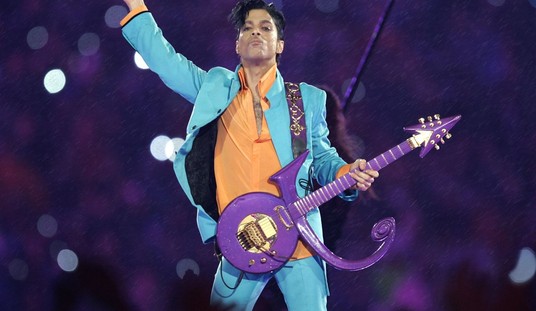
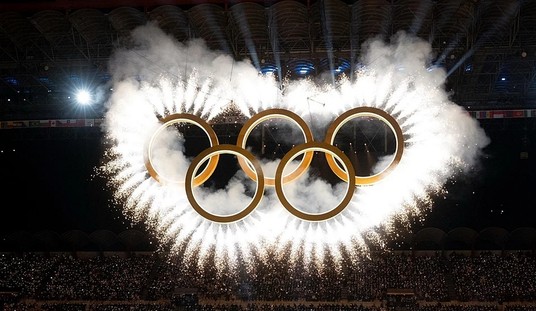




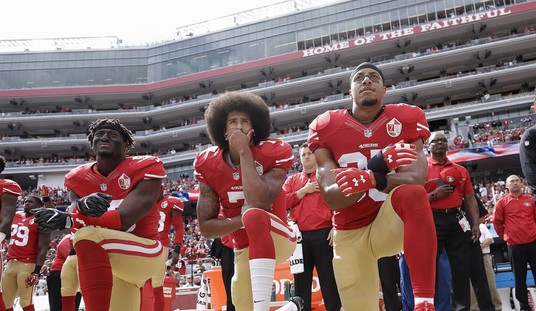
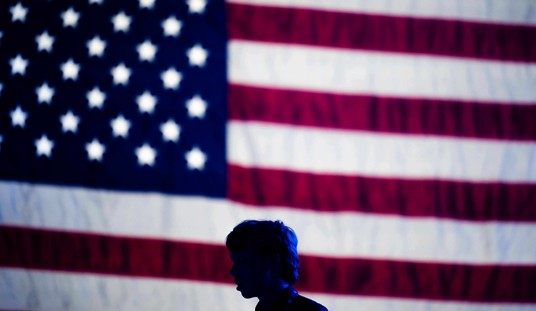


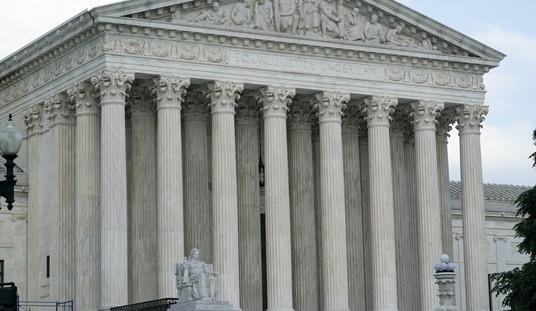

Join the conversation as a VIP Member